CERN (2013)
Жанр : документальный
Время выполнения : 1Ч 15М
Директор : Nikolaus Geyrhalter
Краткое содержание
CERN in Switzerland is a research center where they try to recreate the big bang. Nikolaus Geyrhalter follows the center's infrastructure and meets the people who created the "Large Hadron Collider".
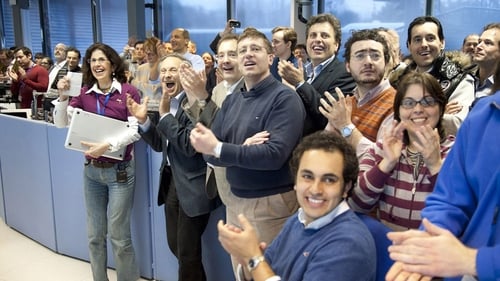
Представьте, что вы могли бы увидеть, как Эдисон зажег первую лампочку или как Франклин впервые получил электричество. Впервые фильм дает зрителям возможность наблюдать за тем, что делают самые выдающиеся ученые нашего времени, и как совершаются великие научные открытия. Авторы фильма «Страсти по частицам» показывают работу шести блестящих ученых над Большим адронным коллайдером и запуск самого крупного и дорогого эксперимента в истории планеты. По мере того, как они пытаются разгадать загадки Вселенной, 10 000 учёных и инженеров из 100 стран объединяют усилия во имя достижения одной цели — воссоздания большого взрыва. Их задача — найти Бозон Хиггса и понять, что стоит в основе мироздания. При том наши герои ставят еще более сложный и глубокий вопрос: достигли ли мы предела в понимании нашего существования?

This shows physicist Stephen Hawking's life as he deals with the ALS that renders him immobile and unable to speak without the use of a computer. Hawking's friends, family, classmates, and peers are interviewed not only about his theories but the man himself.
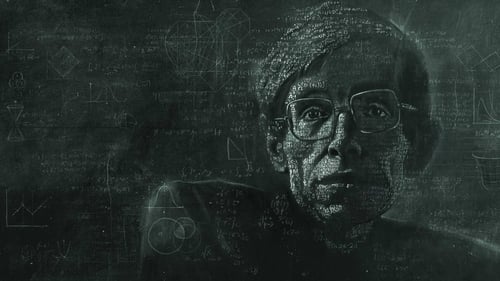
A documentary telling the remarkable human story of Stephen Hawking. For the first time, the personal archives and the testimonies of his closest family reveal both the scale of Hawking's triumphs and the real cost of his disability and success.

Almost one hundred years ago, the project to reduce the world to mathematical physics failed suddenly and completely: “One of the best-kept secrets of science,” physicist Nick Herbert writes, “is that physicists have lost their grip on reality.” The world, we are now told, emerges spontaneously, out of “nothing,” and constitutes a “multiverse,” where “anything that can happen will happen, and it will happen an infinite number of times.” Legendary reclusive genius Wolfgang Smith demonstrates on shockingly obvious grounds the dead end at which physics has arrived, and how we can “return, at last, to the real world.” The End of Quantum Reality introduces this extraordinary man to a contemporary audience which has, perhaps, never encountered a true philos-sophia, one as intimately at ease with the rigors of quantum physics as with the greatest schools of human wisdom.
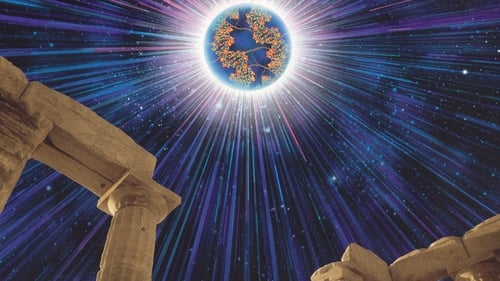
The Academy Award® nominee Cosmic Voyage combines live action with state-of-the-art computer-generated imagery to pinpoint where humans fit in our ever-expanding universe. Highlighting this journey is a "cosmic zoom" based on the powers of 10, extending from the Earth to the largest observable structures in the universe, and then back to the subnuclear realm.

With extraordinary access, BLAST exposes a world of risky, hardcore, scientific adventure. The story follows an international team of astrophysicists trying to launch a multi-million dollar telescope on a NASA high-altitude balloon. Their journey to discover thousands of early galaxies takes them from the Arctic to the Antarctic. Revealing frustrations, inevitable failures and ultimate triumph, BLAST puts a human face on the quest to answer our most basic question - How did we get here? (IMDb)
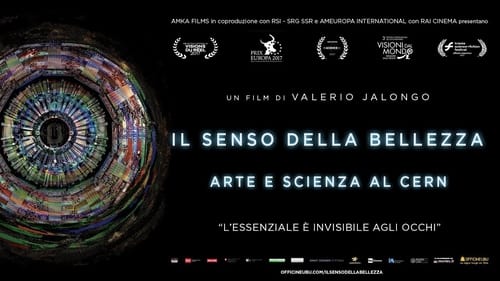
An exploration of the link between science and beauty through the work of scientists at CERN, in Geneva.

This series also covers the essential concepts of astronomy: gravity, the light spectrum, Earth's magnetic field, the solar system, the sun, Kepler's Law, the universal law of gravitation, the Doppler Effect, and much more!

CERN in Switzerland is a research center where they try to recreate the big bang. Nikolaus Geyrhalter follows the center's infrastructure and meets the people who created the "Large Hadron Collider".

Richard Feynman was a scientific genius with - in his words - a "limited intelligence". This dichotomy is just one of the characteristics that made him a fascinating subject. The Pleasure of Finding Things Out exposes us to many more of these intriguing attributes by featuring an extensive conversation with the acclaimed Nobel Prize winner. During the course of the interview, which was conducted in 1981, Feynman uses the undeniable power of the personal to convey otherwise challenging scientific theories. His colorful and lucid stories make abstract concepts tangible, and his warm presence is sure to inspire interest and awe from even the most reluctant student of science. His insights are profound, but his delivery is anything but dry and ostentatious.

In Astronomy Part 2, you will learn all about the planets, asteroids, comets, meteoroids, the layers of the sun, fusion, and more. The Standard Deviants make learning astronomy easier with their unique teaching style, which incorporates humor, mnemonics, and sophisticated computer graphics.

Lawrence Krauss gives a talk on our current picture of the universe, how it will end, and how it could have come from nothing. Krauss is the author of many bestselling books on Physics and Cosmology, including "The Physics of Star Trek."

A physicist celebrates a breakthrough in reversing the flow of time… until a haunting figure pays him a visit.

In 1973 Yorkshire public television made a short film of the Nobel laureate while he was there. The resulting film, Take the World From Another Point of View, was broadcast in America as part of the PBS Nova series. The documentary features a fascinating interview, but what sets it apart from other films on Feynman is the inclusion of a lively conversation he had with the eminent British astrophysicist Fred Hoyle.

This Metaphysical Dark Action Comedy "A MAN CALLED NEREUS" is the debut feature of writer/director Nathan Hill, for Armored Vision. Nereus is an autistic man who is being held captive by the Filaria crime family due to his unique ability to predict the exact outcome of sporting events through time travel. However, this all changes the moment he is kidnapped by a junkie who plans to take him to Las Vegas. Now on the run, the two must weave through madmen, corrupt law enforcement and new-age terrorists.
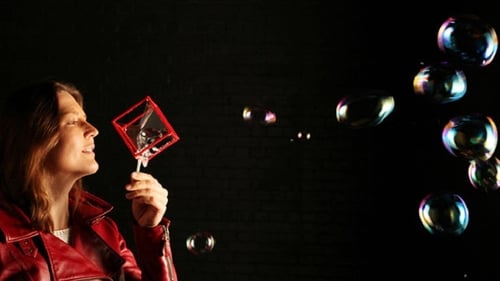
Документальный фильм "Хлоп! Наука о пузырях" познакомят нас с мощным инструментом науки, который позволит объяснить, как живет наша планета. Например, морские волны создают огромное количество пузырей, которые помогают океану дышать. А мыльные пузыри могут поведать нам о том, как работает световая волна. Мы узнали, что пузыри влияют на наш мир в самых неожиданных областях - от поведения животных до звуков текущей воды. Но самое интересное в том, что мы только начинаем осознавать весь потенциал в изучении пузырей. Мы не знаем о пузырях еще очень многого, эти малыши полны секретов и удивительных сюрпризов.

Physics is a system of models of nature according to which all phenomena are explained in terms of matter and force. Sound confusing? It doesn't have to be! Whether you need help with high school physics, need to review for a college physics class, or you're studying for the AP Physics Exam, this physics tutorial will help you understand the basics, such as Newton's Laws, the Law of Universal Gravitation, Kepler's Law and more.

Twenty years after A Brief History of Time flummoxed the world with its big numbers and black holes, its author, Stephen Hawking, concedes that the "ultimate theory" he'd believed to be imminent - which would conclusively explain the origins of life, the universe and everything - remains frustratingly elusive. Yet despite his failing health and the seeming impossibility of the task, Hawking is still devoted to his work; an extraordinary drive that's captured here in fleeting interview snippets and footage of the scientist sharing a microwave dinner with some fawning PhD students. Though the pop-science tutorials that dapple the first of this two-part biography are winningly perky, Hawking, alas, remains as tricky to fathom as his boggling quantum whatnots
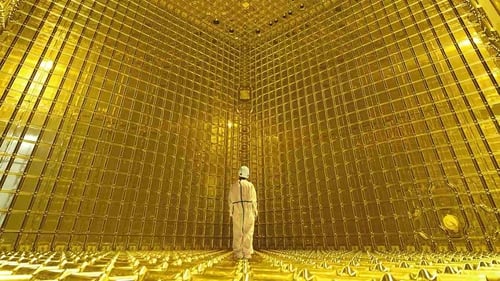
CERN, the world's largest physics laboratory, is also a society in itself. A mythological microcosm and science's answer to the Tower of Babel, with its many thousand employees as an indispensable element among cables and computers. The researchers speak the same esoteric and nerdy language. But their physical trials are not the only experiments in the human anthill. CERN is also a utopian experiment in collaboration across cultures, where the world's most advanced technology meets the world's sharpest—and some of the quirkiest—minds.
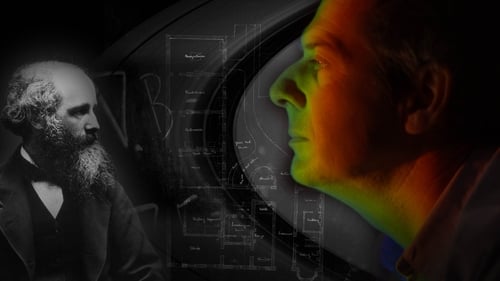
Professor Iain Stewart reveals the story behind the Scottish physicist who was Einstein's hero; James Clerk Maxwell. Maxwell's discoveries not only inspired Einstein, but they helped shape our modern world - allowing the development of radio, TV, mobile phones and much more. Despite this, he is largely unknown in his native land of Scotland. Scientist Iain Stewart sets out to change that, and to celebrate the life, work and legacy of the man dubbed "Scotland's Forgotten Einstein".












